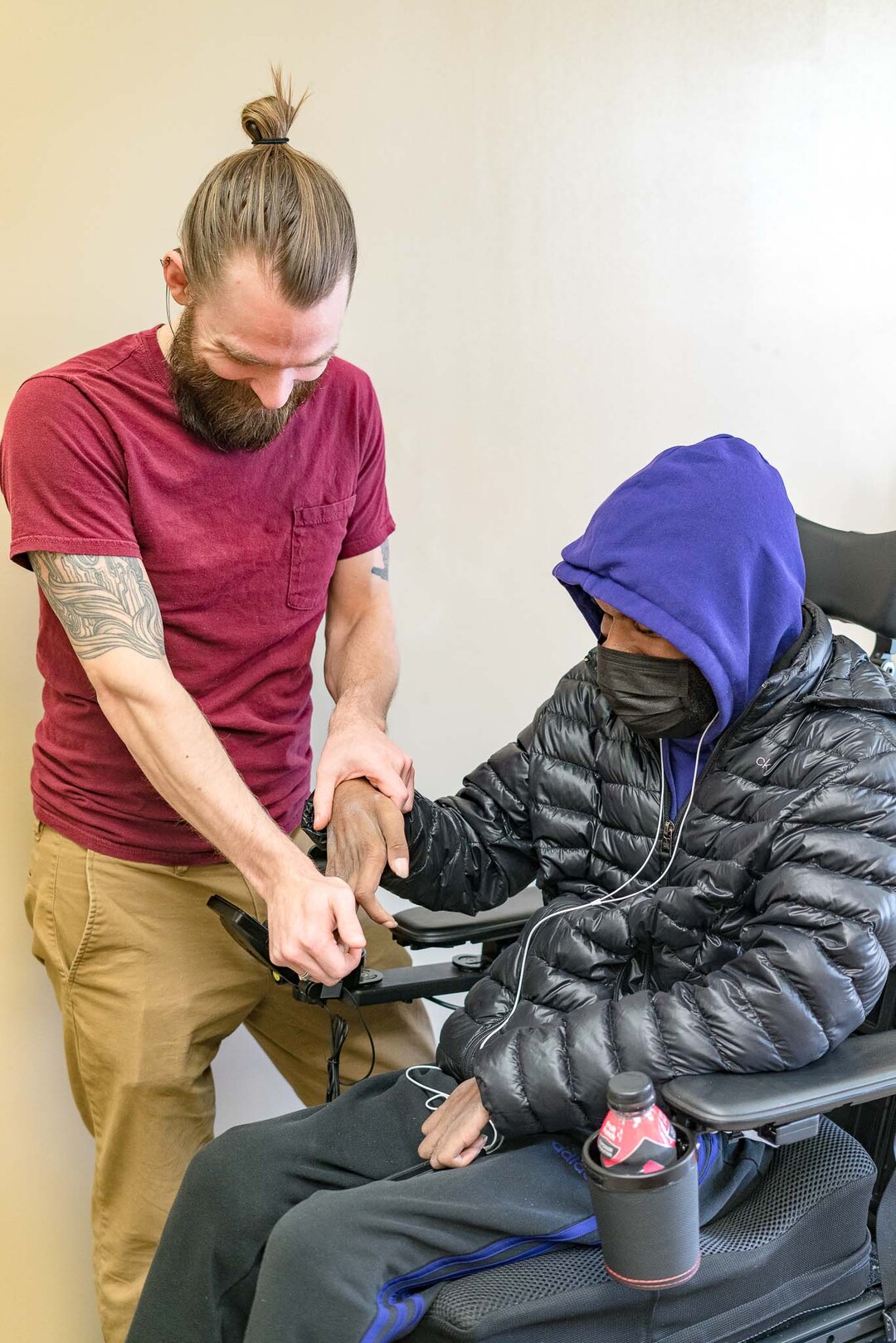Occupational Therapy
At Confident Living, our occupational therapists work diligently to develop a client-centered, occupation-based treatment plan focused on maximizing independence in performing daily tasks. These "occupations" include areas such as work, school, self-care tasks, household tasks, leisure activities, and more. In providing occupation-based treatment our therapists focus on fine and gross motor skills, cognitive skills, and social skills as well as strength and range of motion deficits that impact daily activities. Our clinicians have extensive experience in treating clients with a wide range of neurological and orthopedic conditions such as cerebral palsy, spinal cord injury, post-stroke, brain injury, upper extremity repetitive use injury, joint replacements, and amputations. We work with our clients to help them achieve their goals through use of assistive technologies, activity modifications, individualized exercise programs, and family/caregiver training.
Activities of daily living (ADLs) are basic self-care tasks and instrumental activities of daily living (IADLs) are higher level tasks a person completes to take care of themself and their home.
- ADLs include tasks such as:
- Eating
- Dressing
- Bathing
- Grooming
- Toileting
- IADLs include tasks such as:
- Meal preparation/planning
- Household cleaning
- Shopping
- Money management/paying bills
- Medication management
- Childcare
Impaired motor skills impact a client's ability to complete functional tasks. Our clinicians can provide training in the use of assistive technologies and adaptive devices which allow for increased independence including:
- Computer accessibility for work and personal use
- Adaptive switch access for windows
- Use of accessibility features for Apple devices
- Adaptive gaming
- Dressing equipment
- Feeding devices and adaptive utensils
- Mobile arm supports
- Low-vision aids and compensatory strategies
Strength and Range of Motion (ROM) deficits can be common with a variety of neurological or orthopedic conditions that can limit a client's ability to perform functional tasks. Our clinicians can provide individualized exercise programs, increase ROM through equipment and manual techniques, provide splinting recommendations, and complete activity analysis to break down tasks and determine specific areas of need. Strength and ROM interventions can target:
- Functional reach
- Transfers
- Physical ability to perform self-care tasks
Difficulty with attention, memory, or problem solving can be caused by traumatic brain injury, stroke, and progressive neurological conditions such as Parkinson's disease and multiple sclerosis. Our clinicians can assist clients in problem solving and multi-step planning for IADL tasks such as shopping, meal preparation, and medication management to establish healthy routines and habits.
Our clinicians are specially trained in wheeled mobility and can help train clients on how to use their wheelchairs effectively and independently. We can assist with a variety of wheelchair skills including:
- Driving with alternative drive controls (head array, eye gaze, sip and puff etc)
- Wheelies in manual wheelchairs
- Ascending/descending ramps and curbs
- Transfers into/out of wheelchairs
- Breaking down and assembling wheelchairs for transport
- Navigating small spaces
- Community mobility












